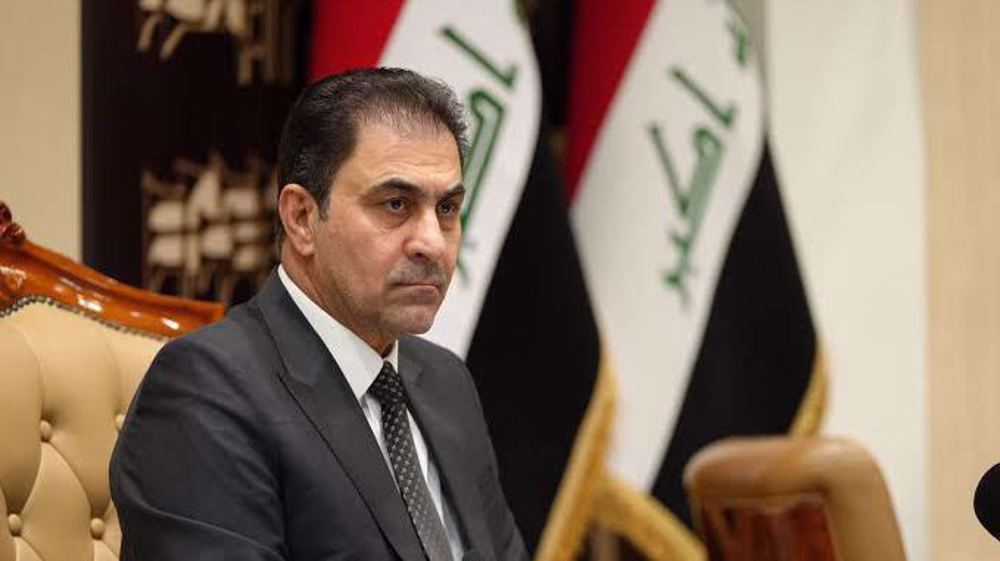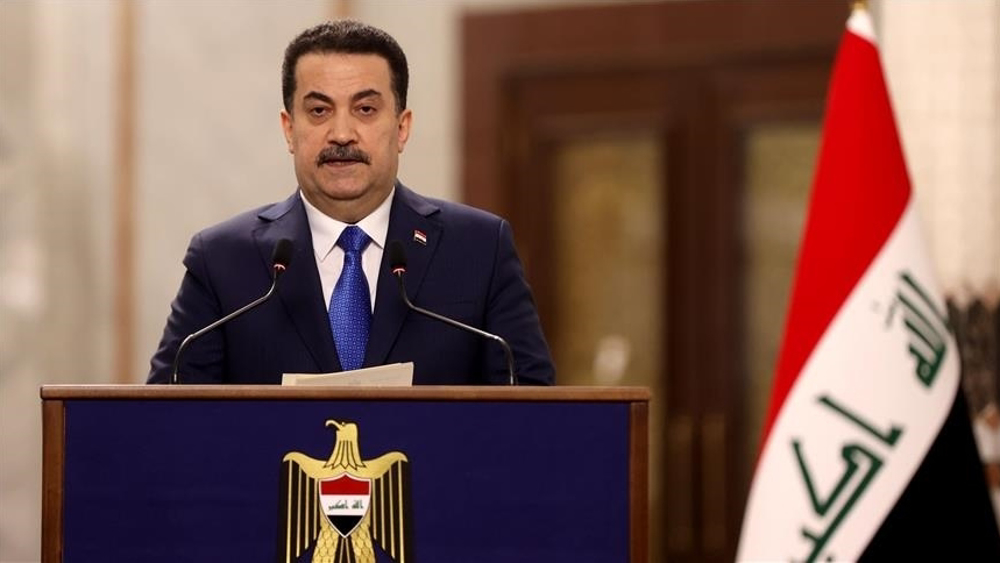Iraq hands over 188 Turkish children of Daesh Takfiri terrorists
Iraq has handed over nearly 200 Turkish children, whose parents are being held over membership in the Daesh Takfiri terrorist group and other militant outfits, to Turkey to fly home.
Abdul Sattar al-Biraqdar, spokesman for Iraq's Supreme Judicial Council, said the handover took place at Baghdad International Airport on Wednesday, and representatives of the Iraqi judiciary, Iraqi Foreign Ministry, Turkish embassy and the United Nations International Children's Emergency Fund (UNICEF) were present until the children got on a plane that would take them home.
“The Central Investigations Court, which is responsible for the terrorism file and foreign suspects, has handed the Turkish side 188 children left behind by Daesh terrorists in Iraq,” Biraqdar added.
The high-ranking Iraqi judiciary official further noted that the figure included a small percentage of adults, who were convicted of illegally crossing the border and having their residencies expired. Children can be held responsible for crimes in Iraq from the age of nine.
Reuters reported in March that about 1,100 children of Daesh terrorists are caught in the Iraqi justice system.
Several hundred children are being prosecuted for offences ranging from illegally entering Iraq to fighting alongside the Takfiri terror group.
Some 185 children, aged nine to 18, have already been convicted and received sentences from a few months to up to 15 years in juvenile detention in Baghdad.
Iraq condemns another Frenchman to death for Daesh membership
Separately, a Baghdad court sentenced a Frenchman to death for joining Daesh and involvement in acts of terror.

Yassin Sakkam was among a group of 12 French citizens, who were captured by the so-called Syrian Democratic Forces (SDF) in Syria and handed over to Iraq in January.
“I admit to having sworn allegiance” to Daesh, Sakkam told the court, saying he was paid $70 (62 euros) a month.
He added that he regretted his decision to join the Takfiri terror group, and asked to be pardoned.
Sakkam, 29, left France in late 2014 to fight for Daesh, posting online pictures of himself carrying arms and speaking to multiple media outlets about the Takfiris.
He became one of the most notorious militants in France, which has been seeking his arrest since 2016. SDF forces detained him in Syria in 2017.
Iraq has been trying hundreds of suspected Daesh members, many of whom were detained as the outfit’s strongholds crumbled throughout Iraq. This includes hundreds of foreigners.
Hundreds of European nationals traveled to the Middle East to join Daesh after the terror group captured large swathes of territory in Iraq and neighboring Syria in mid-2014.
Former Iraqi prime minister Haider al-Abadi declared the end of military operations against Daesh in the country on December 9, 2017.
On July 10 that year, he had formally declared victory over Daesh in Mosul, which served as the terrorists’ main urban stronghold in Iraq.
In the run-up to Mosul's liberation, Iraqi army soldiers and volunteer Hashd al-Sha’abi fighters had made sweeping gains against Daesh.
Iraqi forces took control of eastern Mosul in January 2017 after 100 days of fighting, and launched the battle in the west on February 19 last year.
France slammed over 'inhumane treatment' of militants’ children
Meanwhile, French rights ombudsman has criticized Paris for the “inhumane treatment” of children of Takfiri terrorists stranded in Syria.
“The French state needs to adopt effective measures allowing the halt to the inhumane and degrading treatment of children and their mothers and put an end to the violations of the rights of the child,” France's Human Rights Defender Jacques Toubon said in a statement on Wednesday.
Toubon added that France was flouting its obligations under the UN Convention on the Rights of the Child, to which the Western European country is a signatory.
According to the French Foreign Ministry, some 450 French citizens linked to Daesh are either detained by Kurdish forces in northern Syria, or being held in refugee camps.
But France is reluctant to bring back the militants or their families in the wake of a string of terrorist attacks that have claimed the lives of more than 250 people since 2015.
Izadis sue Germany for failing to bring back Daesh militants
Also on Wednesday, an association affiliated to the Izadi minority group sued two German ministers for failing to repatriate German citizens who had fought for Daesh in Syria to stand trial at home.
The Germany-based federation of the Izadi women's council said, in court documents seen by AFP, that US-backed SDF forces have offered to hand over some 61 suspected German Daesh militants.
Berlin's “failure to accept the offer and to make possible the urgently necessary prosecution constitutes the crime of obstruction of punishment,” the Izazi women's association said.
“Legal cooperation is impossible since there are no state structures” in the Kurdish-controlled areas in the northeastern part of Syria, an unnamed German Justice Ministry spokesman said.
“We haven't received the criminal complaint, so we can't comment,” he pointed out.
The German official added there were 22 outstanding arrest warrants against German militants held in Syria.
The Paris-based NGO International Federation for Human Rights said in a report on October 25 last year that foreign militants, including many of European origins, were responsible for atrocities and acts of brutality carried out by Daesh against Izadi Kurds.
Last August, an official at the Endowments and Religious Affairs Ministry of the semi-autonomous Kurdistan Regional Government said more than 3,000 members of the Izadi minority group had remained unaccounted for ever since Daesh overran their hometowns in northern Iraq in 2014.
Khairi Bozarni said more than 2,500 Izadi Kurds had lost their lives at the hands of Daesh, while another 6,000 – mostly women and children – had been abducted.
Bozarni called on the international community as well as the central government in Baghdad to determine the fate of missing Izadis as soon as possible.
Back in August 2014, Daesh terrorists overran the Kurdish-populated northern Iraqi town of Sinjar, killing, raping, and enslaving large numbers of Izadi Kurds.
The region was recaptured in November 2015, during an operation by Kurdish Peshmerga forces and Izadi fighters.
Hezbollah attacks Israeli forces after Lebanese homes blown up
World leaders, states hail ICC arrest warrants for Netanyahu, Gallant
MP: US accountable for possible Israeli 'foolishness' to attack Iraq
VIDEO | Israeli policies strangle Palestinian agriculture, economy
Iran's president offers condolences to Pakistan over terrorist attack
Canada’s Yukon town council at standstill over refusing oath to King Charles
Yemen's Houthi calls for jihad to protect Palestine against Israel
VIDEO | Internal rifts within Israel

























 This makes it easy to access the Press TV website
This makes it easy to access the Press TV website